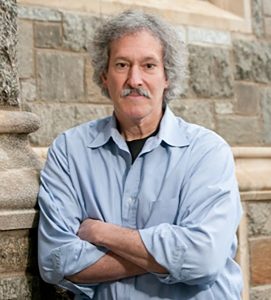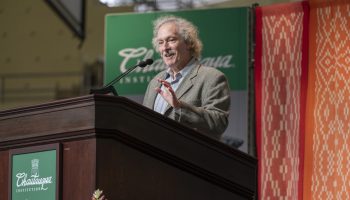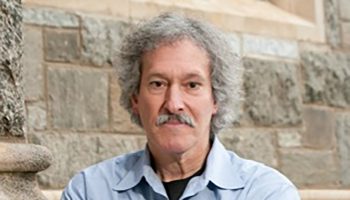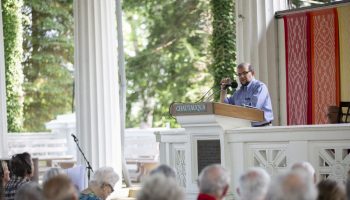Though Russia is no longer subject to strict communist controls, its presidents have still sought out nationwide approval. Part of maintaining power and garnering popularity as president, according to Ori Z. Soltes, is recognizing the importance of religion.
“In the collapse of the Soviet Union and the development of Russia itself, in particular the rise to power of Putin, he has played the religion card in a very interesting series of ways.”
-Ori Z. Soltes, Professor, Georgetown University
 At 2 p.m. Thursday, July 19, in the Hall of Philosophy, Soltes will discuss exactly how Russian President Vladimir Putin, and other presidents, have “played the religion card” in his lecture, “The New and Old Russia: Between Millennia: Religion from Gorbachev to Putin.”
At 2 p.m. Thursday, July 19, in the Hall of Philosophy, Soltes will discuss exactly how Russian President Vladimir Putin, and other presidents, have “played the religion card” in his lecture, “The New and Old Russia: Between Millennia: Religion from Gorbachev to Putin.”
Soltes is a professor at Georgetown University and has led study tours through Russia throughout his career. This is his final lecture of the Week Four interfaith theme, “Russia and Its Soul.”
Appealing to the religious majority is an important part of Russian politics, Soltes said. This strategy began before the official end of the Soviet Union, under Mikhail Gorbachev’s term in 1990.
“Gorbachev returned control of a number of monasteries which had been under government control,” Soltes said. “Also, around 10 years ago, a brand new cathedral of Christ the Savior was built in Moscow, essentially replacing the one that was destroyed 80 or 90 years ago.”
By recognizing and supporting a Christian presence in Russia, presidents have appealed to a majority, Soltes said. However, under the Putin regime, there has been a clear effort to acknowledge other faiths that make up the country’s spiritual foundation.
“Putin has been very judicious about dealing with the Jewish minority, and he’s been very careful where he has encouraged and where he has discouraged anti-Semitic out- bursts,” Soltes said. “But also he’s been rather interesting with respect to the Muslim minority.”
Putin, Soltes said, has been surprisingly vocal about the Muslim minority in Russia, calling for inclusion and respect of all religions.
“As recently as back in January, Putin in The Moscow Times calls for a revival in Islamic education in Russia,” Soltes said.
However, Soltes believes this religious rhetoric is less of a call for diversity and more a representation of Putin’s “sense of realpolitik.”
“If he can propitiate religious minorities while at the same time not offending the Christian majority, then this can lead him to have the kind of control he wants to have,” Soltes said. “And currently, of course, he does.”
Soltes will use images to help audience members understand the role of religion in Russia’s current political regime. Images will be available, via smart device, through the link: chq.org/screen.




